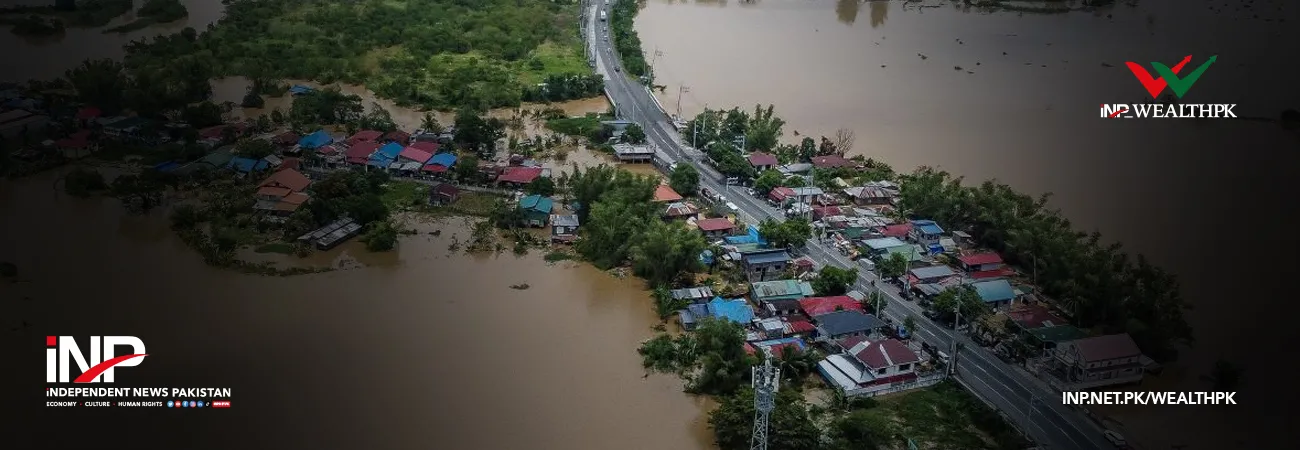INP-WealthPk
Raza Khan
Experts have warned that Pakistan has less time to prepare for extreme weather events and minimise climate-induced damages. They said the weather in Pakistan is getting extreme with each passing year due to climate change effects resulting in abnormal rains and floods. “The only and basic solution to minimise the floods-related damages is to build dams,” Jawad Memon, a climate change analyst, told WealthPK. “The focus should be on building small and viable dams which can be completed in the minimum period,” he said, adding that more floods are expected in the country in future. Memon said that the construction of climate-resilient infrastructure, especially dams, can save lives of the people and infrastructure from flooding and other weather-related calamities. He said that the Arabian Sea has become hyperactive during the last few years due to increased sea surface temperature.
“Climate-related changes in the Arabian Sea are not a good sign for Pakistan,” Memon warned. He informed that low air pressures originated in the Bay of Bengal and now mostly travel to the southern regions of Pakistan due to increased sea surface temperature. Memon predicted that southern regions of Pakistan would receive more abnormal rains during monsoon seasons in the coming years. “Weather is becoming extreme and we have short time to prepare for damage control,” he maintained. He added that weather would be more unpredictable in future in this region. “There can be extreme rains, drought and snowfalls and very harsh summers,” he warned. Dr Ghulam Rasul, former director general of Pakistan Meteorological Department (PMD), also suggested to build dams to minimise the risks of floods in future.
“Dams are the only solution to control the damages caused by floods,” he said, adding that Pakistan should also work on other climate resistance programs in collaboration with the global community. He said Pakistan was among the worst affected countries by the climate change so it needs to take urgent and effective measures to save the lives of the people as well as infrastructure. “We don’t have enough time to launch a long-term weather-resistant project and wait for their completion. We should have a sense of urgency,” Dr Rasul added. He said that the country also needs climate-resilient infrastructure in coastal areas because the Arabian Sea is a hotspot for the formation of tropical cyclones.
He said the frequency of cyclones is expected to increase in future due to the impact of climate change. He stated that buildings and infrastructure along the coast should be designed to withstand winds ranging from 200 to 300 kilometres per hour, as well as heavy rainfall and flooding. Dr Rasul pointed out that in South Asia, tropical cyclones primarily form in two basins: the Bay of Bengal and the Arabian Sea. “Historically, the Arabian Sea had a minimal occurrence of cyclones during the previous five to 10 years,” he added. However, he said that due to rising sea temperatures attributed to climate change, the number of cyclones in the Arabian Sea has been increasing.
“Presently, one or two tropical cyclones form in the Arabian Sea each year,” he mentioned.
Credit: INP-WealthPk













